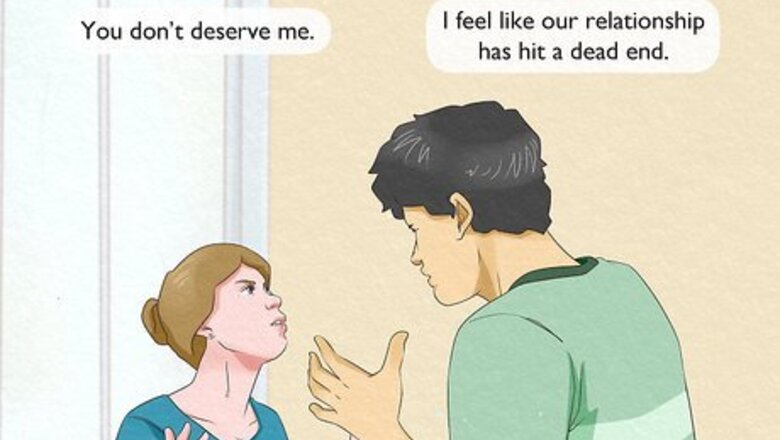
views
“You don’t deserve me.”
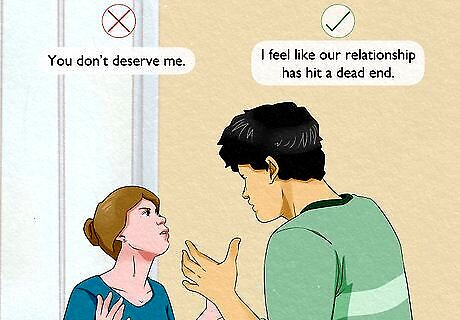
Never make your partner feel less than you. In a healthy relationship, both parties are equal. There’s mutual respect and love for one another—no one’s better than the other. This statement could potentially damage your partner’s self-esteem and make you seem entitled. What to say instead: “I’m having a hard time seeing us as partners,” or “I feel like our relationship has hit a dead end.”
“You’re pathetic.”
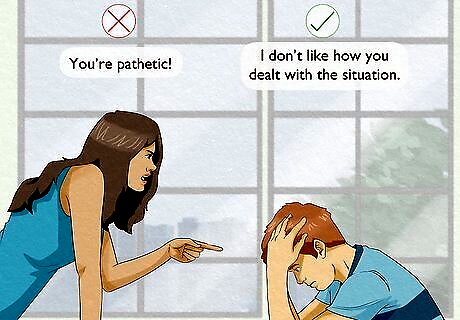
Dissing your partner will likely make them feel bad about themselves. Even if it’s done in a joking manner, name-calling or disrespectful criticism can negatively impact your relationship and cause your partner to doubt themselves. You may think something harsh about your partner, but that doesn’t necessarily mean you should share it, especially if you want the relationship to thrive. What to say instead: “I don’t like how you dealt with the situation,” or “It bothered me when you handled that without me.”
“I hate you.”
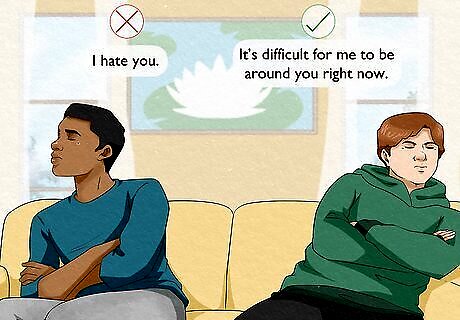
Mean remarks can be toxic in a relationship. “Hate” is a powerful word, and using it with your partner (even in heated moments) can damper your relationship. You may strongly dislike them in one moment, but that doesn’t necessarily constitute a relationship’s worth of feelings. Statements like this can escalate their insecurities and make them second-guess the relationship. What to say instead: “It’s difficult for me to be around you right now,” or “I don’t agree with what happened. I need some space to think.”
“You’re overreacting.”
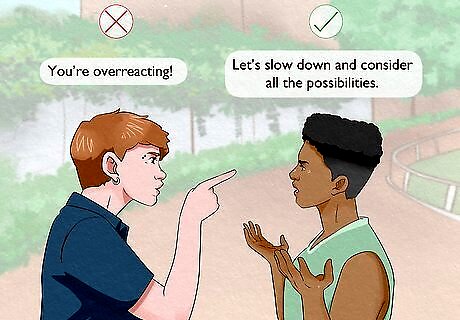
Pushing aside your partner’s feelings is never okay. One of the worst things you can do is gaslight your partner or make them second-guess their emotions or experiences. Saying that they’re “crazy,” “overreacting,” or “being dramatic” undermines their reality and puts your experiences above their own. This can cause them to question the relationship and wonder if they’re being manipulated. What to say instead: “I think your reaction might be making things worse,” or “Let’s slow down and consider all the possibilities.”
“Calm down.”
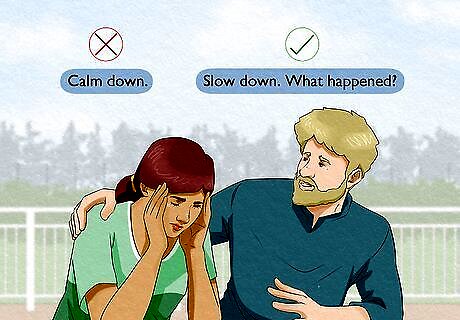
Dismissing your partner’s emotions can be extremely toxic. No matter how energized or emotional your partner gets, it’s never okay to blatantly tell them to “calm down” or “relax.” This minimizes whatever they feel and gaslights them into thinking they’re overreacting. Over time, this can make them insecure with themselves and the relationship. What to say instead: “Let’s take a deep breath and think about this,” or “Slow down. What happened?”
“You’re so needy.”
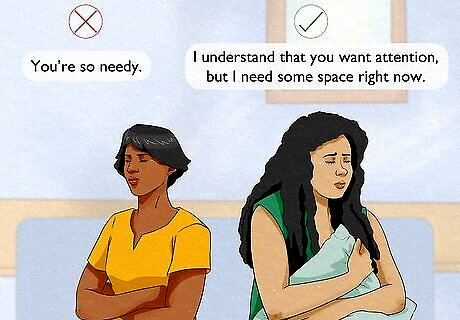
Belittling language makes it seem like their needs don’t matter. No one deserves to be degraded or minimized because they’re emotional or expressive. Language that makes them feel like an annoyance or bother can put a heavy cloud on the relationship and cause them to hide in their shell. What to say instead: “I understand that you want attention, but I need some space right now,” or “I had a long day. Can we talk about this in an hour after we’ve both decompressed?”
“I’m over this.”
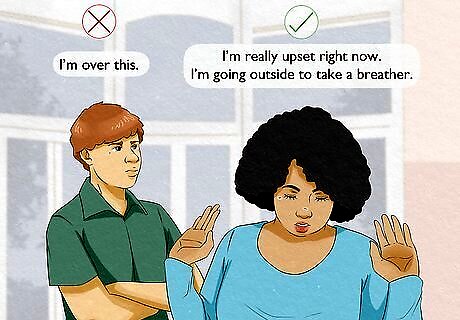
Dismissive language may make your partner think the relationship’s over. In the heat of the moment, it can be easy to claim that you’re “over” the relationship even when you’re not. Avoid this language unless you absolutely mean it, no matter how upset you are. Statements like “I’m leaving” or “I’m done” can create instability, insecurity, and a lack of intimacy. What to say instead: “I’m really upset right now. I’m going outside to take a breather,” or “Can we talk about our relationship?”
“Look what you made me do.”
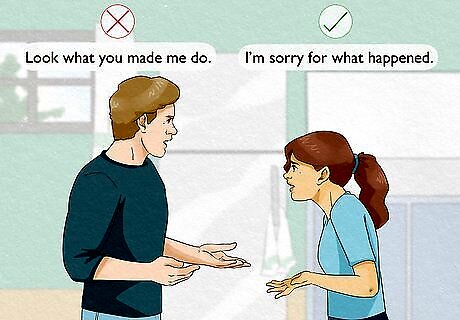
It’s never good if you point blame at your partner. In a relationship, taking accountability and responsibility for your actions is important—no one is in charge of you but you. If you always put everything on your partner, they’ll likely feel manipulated or start second-guessing their relationship with you. What to say instead: “I’m sorry for what happened,” or “I take full responsibility for this. I’m sorry for letting this happen.”
“I don’t care about your opinion.”
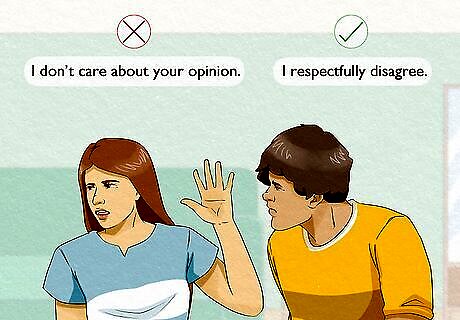
Putting your partner down may make them dislike you. Even if you don’t agree with something they say, it’s important to respect their opinion. You won’t always see eye-to-eye with them (no one’s relationship is that perfect), but you should never put them down because they have a different view. There should be mutual respect for one another. What to say instead: “I respectfully disagree,” or “I can’t say I agree, but I’m happy to hear why you may think that.”
“Everything’s fine. Stop asking if I’m okay.”
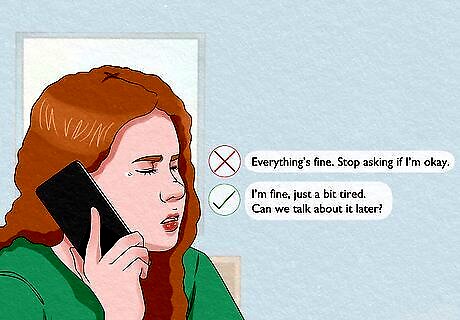
Your partner may get the wrong idea if you’re passive-aggressive. Passive-aggressive language can be curt and accusatory (even if you don’t mean it to be). Shutting down someone’s concerns can cut off honest and direct conversation. If this is continuously done, it could make resolving conflicts more difficult in the future. What to say instead: “I’m upset, but I don’t want to talk about it right now,” or “I’m fine, just a bit tired. Can we talk about it later?”
“I told you so.”

Never make your partner feel like you’re above them. Respect is an essential part of a healthy relationship. Even if you are right in a situation, it’s uncalled for to say, “I told you so.” This points the blame on your partner and makes you seem superior, which can fuel their insecurities and make them doubt themselves. What to say instead: “Things didn’t work out the way you expected, but that’s okay!” or “I guess that’s how the cookie crumbles.”
“Why aren’t you more like __?”

Comparing your partner to someone else can make them insecure. Using statements like this is a recipe for disaster, especially if your partner struggles with self-image. If you compare them to someone else (such as a friend, family member, ex, or celebrity), they may think, “I’m not good enough.” This can make them question whether being themselves is worthy enough of love. What to say instead: “You’d look great in a top like that,” or “Have you ever tried cooking something like this?”
“If you loved me, you’d do this for me.”
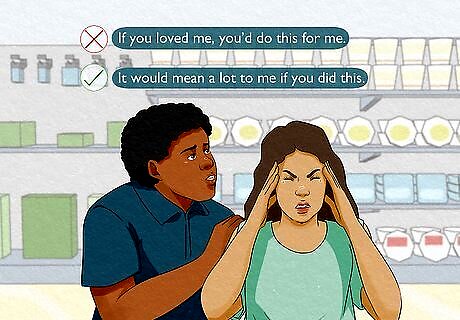
Coercing your partner can cause feelings of guilt and shame. Claiming that someone should do something for you if they love you is manipulative and controlling. This behavior can cause your partner to doubt the relationship and/or feel like they’re obligated to do something. What to say instead: “It would mean a lot to me if you did this,” or “The decision is entirely up to you. I’ll love you either way.”
“You’re lucky to have me.”
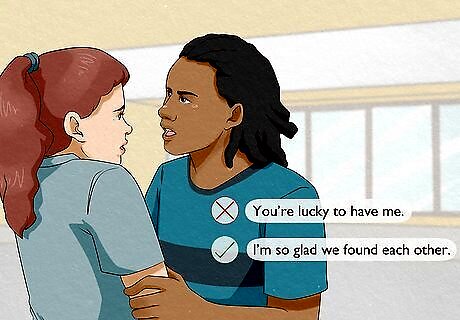
Avoid making your partner feel like they’re not worthy of love. This hurtful phrase is toxic because it belittles your partner and insinuates that you’re better than them. By saying this, you imply that they don’t deserve respect and should be grateful that you “put up” with them. What to say instead: “I’m so glad we found each other,” or “We make a great couple, don’t you think?”

















Comments
0 comment